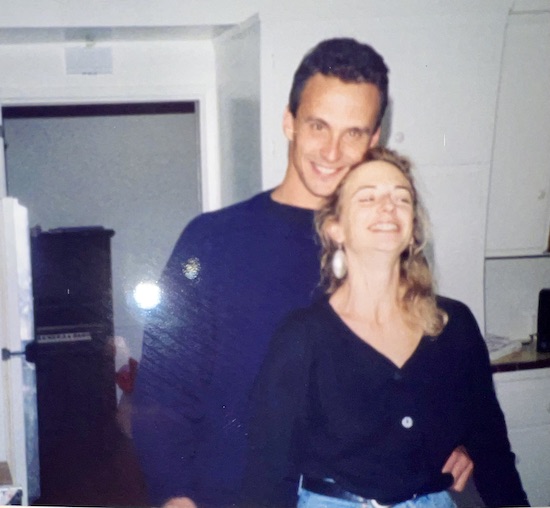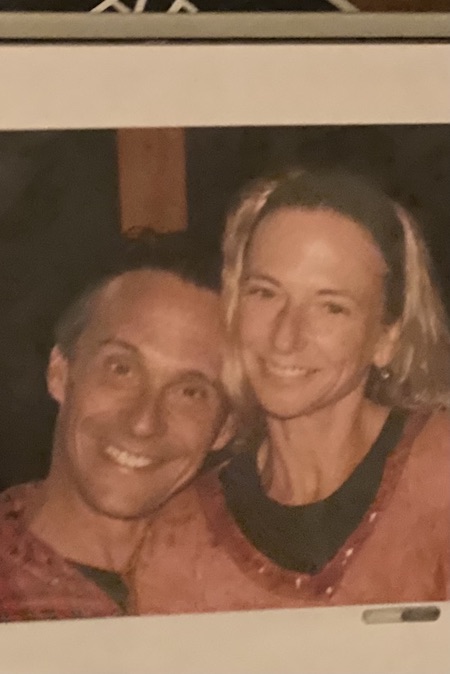
c/o Kari Weil
Did you know professors can fall in love, too? This year, The Argus talked to professors who are together at the University to hear their stories of academia, romance, and everything in between.
Professor Kari Weil is a University Professor of Letters. President Michael Roth ’78 was not available for this interview.
The Argus: Can you take us back to when you first met?
Kari Weil: We don’t actually remember exactly how we first met. We were in graduate school together at Princeton, and we had friends in common. We think we must have met at somebody’s party, but we don’t remember interacting. We re-met a number of years later when I was a visitor at [University of California] Irvine teaching, and he was at Scripps College. A professor we both knew from Princeton [University] came to Irvine to give a talk, and he [Roth] came to the talk, and I was there. And we both looked at each other—“Don’t I know you?” We got together after the talk and closed down the reception. I remember asking him if he had a clone, because I felt like we had such a connection.
A: Is there an intellectual collaboration in your relationship?
KW: He would probably say I write his titles. I like titles. We send each other things we’ve written and often will review and so on. [His book] “Safe Enough Spaces,” I think I came up with [that title]. My favorite title for one of my pieces was “Putting the Horse before Descartes.”
A: To what extent do you have rules about not talking about work at home? Is there an attempted separation? Does it feel all-consuming?
KW: Not in terms of what we talk about. But it’s all consuming when we’re here on a weekend. Which is why I said, after our first year, I need somewhere else to live. I need a home. We have a house up in the Berkshires, where I don’t always feel at work, and I don’t always feel like I’m in his world. We talk about work everywhere. That’s never been a problem. I want to know what’s on his mind, what’s troubling him, and how things are going.
A: In Middletown, what’s your favorite date night restaurant?
KW: Can I name two? El Pulpo or Luce. I would say Luce if we just want to be by the fireplace.
A: I’ve been asking all the professors what they admire about each other.
KW: Something I admire about him is his bravery [and] his authenticity. I don’t see him ever performing. I see him saying what he feels straight from what he believes in, and [he] doesn’t cover it up and doesn’t try to fluff it up. Right now, that’s a difficult thing, and I get worried what it will mean for him [and] the school. But I think it’s something to be very proud of.
A: Do you feel like you’re able to exist as a professor in your own right? Do students know you’re married? Do you feel tied to [President Michael] Roth [’78] and everything that comes with that?
KW: Can I answer honestly? With some students, yes; with some students, no. I mean, it’s happened at different times that I am just seen as his wife. But the students who are working with me on their theses, and the students who have had a few classes with me, that doesn’t figure into it. You know, it’s something to negotiate, I understand.
A: When he took the position at the University, how did you expect it would change the relationship? To what extent has it changed the relationship?
KW: I don’t know if it’s changed the relationship so much, except that he has become a much bigger figure in the grand scheme of academia. I suppose here—[and] I hadn’t thought about it this way—but [in Middletown], it’s more difficult to have a set of friends outside the University. Middletown is not a place where you run into or meet lots of people. And I realize in that regard, you know, not everybody wants to hang out with the boss. And that’s been, you know, I mean, we’ve, we’ve had our friends. We still have some friends, but not like…. I mean, when we were in California, I had all kinds of friends outside of work. So it’s less our relationship and more the situation.
A: That’s something I’ve been really curious about with any married relationship: how it affects people’s social lives and circles as individuals. When you want to get out of the Wesleyan world, what are some of the things that bring you joy?
KW: My dog. I ride horses. I was hoping there would be enough snow so I could get out on my cross-country skis.
A: Does it feel like you two are able to exist as a couple separate from this whole world that you’re enmeshed in?

c/o Kari Weil
KW: It’s a great question, and I think that’s why we have a place away. That’s why we need a place to be away, where we’re not always having the eyes of our work upon us. We share the same workday schedule [in the summer]. We get up very early, we walk the dog, we’ll work for a few hours, and then we’ll go out and maybe play some tennis or something else, and then we’ll work for a few more hours, and then we’ll jump to the lake, you know? And I love that schedule, and he loves that schedule, and that’s where we’re very compatible.
A: Is that what you envision for retirement?
KW: People have asked us, “What do you view in retirement?” Well, mine is, “I want to ride [horses] more. I want to swim more. I want to ski more and do some work and read books that I don’t need to read. He says, “Well, I really just want to be in a room in my library and not have to go out anymore.” He wants to be with his books, and I like to be physically active. But, you know, we coordinate.
This interview was edited for length and clarity.
Thomas Lyons can be reached at trlyons@wesleyan.edu.